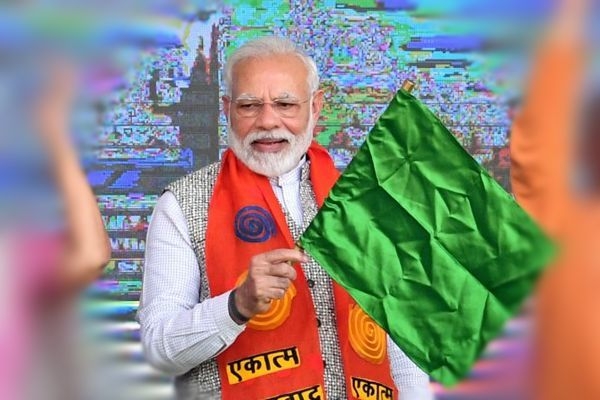Snapshot
The train would pass through Janakpur, believed to be the birthplace of Devi Sita, in Nepal.
The first passenger train service on broad gauge line from India to Nepal is slated to be flagged off by Prime Minister Narendra Modi amid the presence of high-level Nepalese delegation including Prime Minister Sher Bahadur Deuba here virtually on 2 April.
The 35-km line from Joynagar in Bihar to Kurtha in Nepal is going to be commissioned on 2 April with the operation of a five-coach DEMU train, the first broad gauge (BG) passenger service in the Himalayan country.
The train would pass through Janakpur, believed to be the birthplace of Devi Sita, in Nepal.
With the operation of the passenger service, the birthplace of Devi Sita is expected to draw people from far and wide.
Earlier there was a narrow gauge line in the section which was converted to a BG line by IRCON, the PSU of Indian Railways, at an estimated cost of Rs 500 cr.
India has provided two DEMU trains with five-coach each, to Nepal at Rs 52 crore cost for running the passenger service in the section.
The Konkan Railway Corporation Limited has been assigned for the maintenance of the train service.
Deuba is likely to travel to India next week on a three-day official visit. Besides the launching of the train, there would be a series of bilateral meetings concerning India-Nepal issues.
India has also decided to start a new passenger train for Bangladesh to further strengthen people to people connectivity through rail.
The new passenger train service – Mitali Express, is likely to start running between Dhaka and West Bengal’s New Jalpaiguri (NJP) in India to boost rail connectivity between the two neighbours.
There are already two existing passenger train services – Kolkata-Dhaka-Kolkata Maitree Express (five days in a week) and Kolkata-Khulna-Kolkata Bandhan Express (two days in a week) between India and Bangladesh. These two trains have been suspended due to Covid pandemic restrictions.


